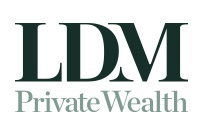Forty-eight per cent of small and medium-sized enterprises (SMEs) want to see measures that relieve cost of living pressures in tonight’s Federal Budget, outweighing the 31% who want less red tape and bureaucratic processes, and 30% who want a decrease in company tax rate, according to a new MYOB survey.
The latest survey of over 1,000 small and medium sized businesses, conducted just weeks out from the Federal Budget, finds 44% of respondents believe there will be a recession in the next 12 months.
Fifty-seven per cent of respondents haven’t operated their business during a recession.
MYOB Chief Employee Experience Officer, Helen Lea, said it is no surprise Australian small businesses are concerned about cost of living, with recession looming and many already struggling.
“There’s no doubt small businesses are doing it tough, one in five survey respondents describes their current financial position as either fair or poor.
“While they’re still showing signs of resilience, increasing rates and input costs will only make operating a business harder for the country’s 2.4 million SMEs.”
The lifeblood of the economy
Twenty-eight per cent of respondents said they have business loans on a fixed or variable interest rate.
The top pressures on their business operations are the cost of utilities (36%), fuel prices (34%), interest rates (32%), and price margins and profitability (26%).
“Small businesses employ over 7.4 million Australians and make up 99% of Australian enterprises, they are the lifeblood of the economy and this Budget needs to deliver support for them.
“The Government’s pre-Budget announcement of the energy incentive is a step in the right direction, with our data showing rebates for energy usage are a top priority for small businesses, but we’d like to see additional, targeted outcomes for the sector.
“In a market where SMEs need to do more with less, there is greater importance on the adoption of digital tools to increase efficiency and help SMEs navigate tough times.
“However, less than 50% of respondents are using digital cloud-based software in their business for core workflows such as accounting, finances, supply chain and employee management.”
“For almost one fifth of small businesses respondents, cost is still a top barrier to adopting digital tools. This is an area we’d like to see prioritised to help small businesses boost their productivity.”
Digital investment key
The World Bank’s 2023 Global Economic Prospects Report identifies that investment in digital capabilities will offer strong investment growth potential for global economies.
In particular, the report calls out fiscal policies that balance private and public investment in digital capabilities as one key mechanism to reduce inequality in skills and protect against global economic pressures.
“MYOB internal modelling found the ROI on investment in digital tools is 25:1. With small and medium sized businesses already contributing $700 billion to the economy, helping them to adopt digital tools would go much further than just helping small businesses weather the next 12 months.”
SME support critical to help cost of living
When it comes to Budget outcomes, Ms Lea said supporting SMEs is vital.
“I encourage the Government to deliver meaningful outcomes for small businesses in this Budget,” Ms Lea said.
“In the short term, cost of living measures and energy incentives will give support during the winter months.
“However, supporting small businesses digitise, by legislating and extending the Small Business Technology Investment Boost and the Skills and Training Boost, will achieve greater productivity and resilience in the long term.
“SMEs play a crucial role at the heart of Australia’s communities and in building a strong national economy, ensuring these businesses have skilled access to digital tools is essential to help Australia’s economy navigate this downturn and a possible recession.”
About the research
The MYOB Business Monitor researches business performance and attitudes regarding areas such as profitability, cash flow, pipeline work, technology usage and the government.
This report presents the summary findings for key indicators from the MYOB Business Monitor comprising a national sample of 1,029 business owners, managers and directors (operators), conducted from March 28th to April 24th, 2023.
The businesses participating in the online survey were both non-employing and employing businesses.
All data has been weighted by industry type, location and number of employees, which are in line with the Australian Bureau of Statistics (ABS – Counts of Australian businesses, including entries & exits – 8165.0).
Source: MYOB May 2023
Reproduced with the permission of MYOB. This article by <author name> was originally published at https://www.myob.com/au/blog/cost-of-living-top-concern-for-smes/
Important:
This provides general information and hasn’t taken your circumstances into account. It’s important to consider your particular circumstances before deciding what’s right for you. Although the information is from sources considered reliable, we do not guarantee that it is accurate or complete. You should not rely upon it and should seek qualified advice before making any investment decision. Except where liability under any statute cannot be excluded, we do not accept any liability (whether under contract, tort or otherwise) for any resulting loss or damage of the reader or any other person.
Any information provided by the author detailed above is separate and external to our business and our Licensee. Neither our business nor our Licensee takes any responsibility for any action or any service provided by the author. Any links have been provided with permission for information purposes only and will take you to external websites, which are not connected to our company in any way. Note: Our company does not endorse and is not responsible for the accuracy of the contents/information contained within the linked site(s) accessible from this page.



